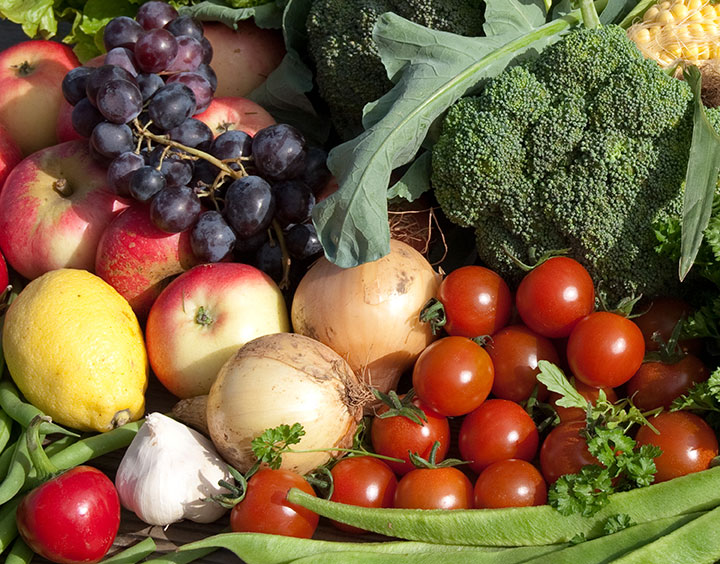Leading organic farmer Guy Singh-Watson has called a 4.5 per cent growth in organic food sales “disappointing” as the huge rise in environmental awareness failed to translate into sales.
The figures were released as part of the new Organic Market Report, published yesterday (5 February) by the Soil Association, which predicted 2020 would be a “tipping point for the organic market”.
The overall market share of organic food has increased from 1.3 to 1.6 per cent since 2015, according to the Soil Association, and while growth outperforms the rest of the market, it remains a fraction of the market for non organic food.
“Given the huge rise in discussion of green issues over the last year and the solutions that organic farming can contribute, a 4.5 per cent growth in the UK organic market is disappointing and still leaves us trailing the European and North American markets,” said Singh-Watson, who set up organic veg box company Riverford in 1987.
The UK organic market is the ninth biggest in the world by value sales, behind the US, Germany, France, China and Italy as the top five.
“Marketing specialists will tell us (again) that we have failed to communicate the benefits in easily grasped soundbites. They are probably right but that could be down to a desire the tell the truth; ecology and the environment are seldom simple and lasting solutions are inevitably complex and site specific,” he said.
Sales and market share aside, Singh-Watson said he was heartened by signs that agroecological principles are increasingly being adopted by the non organic farming sector.
“It is interesting that more and more of the principles of soil health and agroecology, long since embraced by organic farming, are being borrowed, in part at least, by the conventional farming industry. I would suggest the influence of organic farming has grown far more than 4.5 per cent,” he said.
Plant-based trend fails to boost produce
Organic eggs, poultry and wine saw the highest sales growth over the past year, while the biggest growth channel for organic was online and home delivery, with sales growing 11.2 per cent.
The huge interest in plant-based food has contributed to a spike in sales of organic chilled and deli foods (up 15.9 per cent), the Soil Association said, although organic fruit and veg saw sales fall by 2.4 per cent.
Searches on the Soil Association website for ‘organic box scheme’ were up by 174 per cent year on year to the end of 2019, while Ocado, the UK’s biggest organic online retailer, expanded its organic lines to over 4,500 and enjoying a 12 per cent sales increase.

The major supermarkets saw sales of organic increase in 2019, up 2.5 per cent, and outpacing the overall market, despite their overall share of the UK’s organic market falling to 64.6 per cent, as other channels ate into their dominance.
Soil Association business development director, Clare McDermott, said: “With the climate crisis and British farming dominating the headlines, organic is more relevant than ever as a way for shoppers looking for simple choices to reduce their environmental impact.
“2019 was another exciting year for organic and 2020 will be a tipping point where organic becomes the go-to choice for shoppers who want to have a sustainable shopping basket,” she said.
Feeding the world with organic
Writing in the summary of the report, chief executive Helen Browning said the debate now needs to shift from ‘what we eat’ to ‘how we produce it’ and to recognise that organic farming systems are a big part of the solution.
“This is why the Soil Association has explored and promoted the model developed by IDDRI, a French policy research institute, which shows how an agroecological Europe could look,” she said.
“The IDDRI team used organic yields and techniques in their assumptions, and plan to do a similar exercise for the UK in 2020.
“The good news is that organic sales continue to grow well ahead of the overall market, and we expect this to continue.”